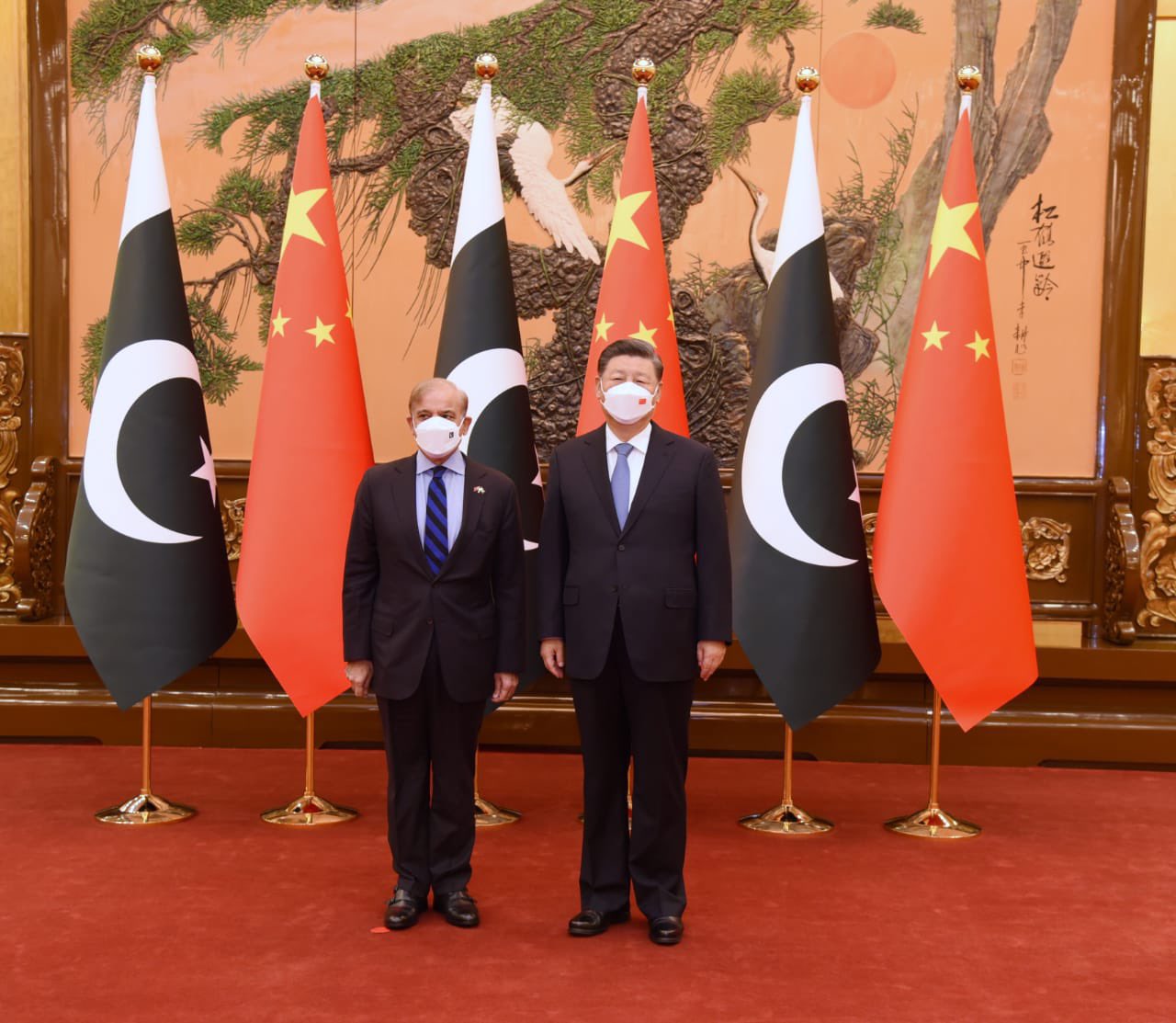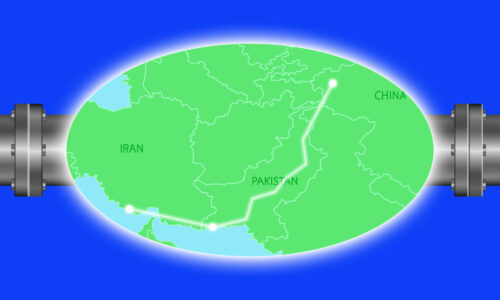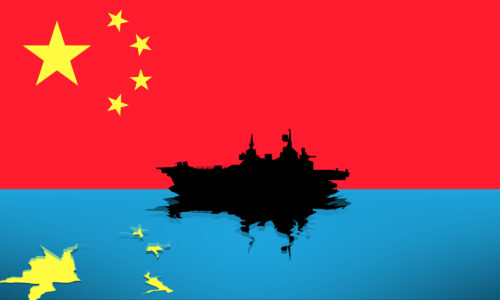China and Pakistan fast-track economic ties with more railways, ports, and yuan
The leaders of “iron brothers” met in Beijing and assured each of other of their mutual support, financial and moral.

Chinese leader Xí Jìnpíng 习近平 met with Pakistani Prime Minister Shehbaz Sharif at the Great Hall of the People in Beijing today. The two leaders pledged to deepen ties between their nations and maintain stability, while supporting each other’s territorial and sovereignty claims. (Read the official joint statement, and separate statements from Islamabad and Beijing.)
- Sharif’s two-day visit to China — his first trip since assuming office in April — included talks with Premier Lǐ Kèqiáng 李克强 and Standing Committee chairman Lì Zhànshū 栗战书.
- Xi and Sharif last met in September at the Shanghai Cooperation Organization (SCO) in Samarkand, Uzbekistan, during Xi’s first trip outside China since the start of the COVID pandemic.
- China has long called Pakistan an “iron brother” (铁兄弟 tiě xiōngdì).
China pledged to continue to help stabilize Pakistan’s financial situation, since devastating floods caused an estimated $30 billion or more in losses this summer, with Xi agreeing to provide 500 million yuan ($68.7 million) to Pakistan’s flood-relief efforts. Xi included plans to speed up major infrastructure projects under the $65 billion China-Pakistan Economic Corridor (CPEC):
- The two leaders agreed to develop a high-speed rail project worth up to $9.85 billion known as the Main Line-1 (ML-1). The 1,163-mile track will carry high-speed trains from Karachi to Peshawar, and was formally approved by Pakistan earlier this week after years of discussion, though authorities had not specified where the funds would come from.
- Details will be finalized for an inner-city rail line in Karachi, Pakistan’s biggest city.
- China’s central bank and the State Bank of Pakistan signed a memorandum of cooperation (MOC) to establish an RMB-clearing arrangement in the Middle Eastern nation in order to facilitate cross-border transactions of the yuan, the People’s Bank of China (PBOC) said on Wednesday.
Xi and Sharif also agreed to “accelerate the construction” of the controversial, Chinese state-funded Gwadar Port — a massive project strategically located in the resource-rich Pakistani province of Balochistan along the Arabian Sea, and the target of a growing number of attacks from a local separatist group called the Balochistan Liberation Army (BLA).
- At the meeting, Xi expressed “great concern” for the safety of Chinese nationals in Pakistan, while urging the country’s government to provide “a reliable and safe environment” for Chinese nationals and interests in the region.
- “Attacks on the Chinese nationals and projects in Pakistan are of grave concern for the government,” Pakistani authorities told Reuters earlier in October, adding that the government was in active pursuit of such militant outfits.
- Rather than getting Beijing to “quit Balochistan” — as a BLA commander told Xi directly in a now-removed video on social media, following the Karachi bombing that killed three Chinese nationals in April — the recent attacks have strengthened the resolve on both sides to counter any threats that could destabilize shared interests in the region.
China’s economic support to Pakistan comes at a time when Beijing has been more cautious about its foreign lending to regions that are battling political instability, as the world’s second-largest economy and largest state lender battles its own slowing economic growth.
- Pakistan owes about 30% of its foreign debt to China, including state-owned commercial banks, the International Monetary Fund said in a report in September per Bloomberg.
- Both Xi and Sharif agreed to continue their support to neighboring Afghanistan in a bid to stabilize their shared interests in the region.






